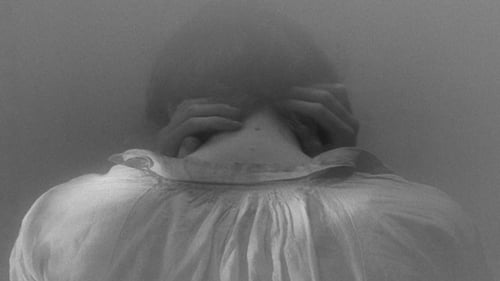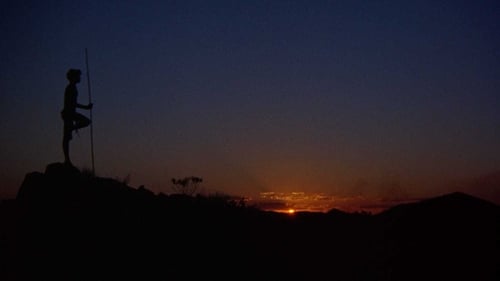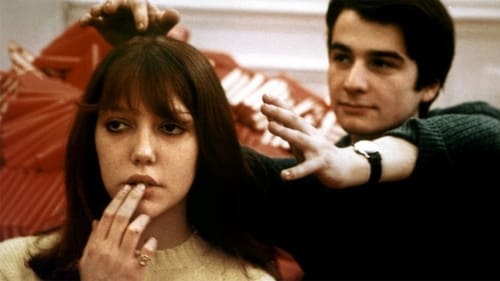Karlheinz Stockhausen
Nacimiento : 1928-08-22, Mödrath, Kerpen, Germany
Muerte : 2007-12-05
Historia
Karlheinz Stockhausen was a German composer, acknowledged by critics as one of the most important but also controversial composers of the 20th and early 21st centuries. He is most known for his groundbreaking work in electronic music, aleatory (controlled chance) in serial composition, and musical spatialization.

Self - Composer (archive footage)
The amazing story of electronic music: its epic journey from its origins in Europe, at the hands of the great artists of the post-war classical avant-garde, to the great post-industrial cities of the USA, where this genre of genres took over music stores, shady clubs and, eventually, the big stages.

Music
How can a DSLR camera move in the ruins of a 19th century mansion that is battered to be covered with glass and steel in the days to come, for that’s a more appropriate image as a shopping mall. How to get up and to do what in the ruins; the scenery of late ones to come? Here, this occurs: there are holes in some walls releasing specters to haunt which that makes impossible to reach. What is an Istanbul, where is Aleppo.

Himself
One morning, the late Karlheinz Stockhausen awoke from a dream that told him to take to the sky. Stockhausen envisioned four helicopters swirling in the clouds, with each of a quartet’s members tucked inside his own chopper, communicating through headsets, stringing away in sync to the rotor-blade motors. He immediately set forth to make that dream a reality. In 1995, Dutch film director Scheffer followed Stockhausen in the days leading up to the premiere performance of his Helicopter String Quartet in Amsterdam. The resulting film offers a rare glimpse of Stockhausen as he patiently dictates every agonizingly detailed measure to the Arditti Quartet.

Musical
One morning, the late Karlheinz Stockhausen awoke from a dream that told him to take to the sky. Stockhausen envisioned four helicopters swirling in the clouds, with each of a quartet’s members tucked inside his own chopper, communicating through headsets, stringing away in sync to the rotor-blade motors. He immediately set forth to make that dream a reality. In 1995, Dutch film director Scheffer followed Stockhausen in the days leading up to the premiere performance of his Helicopter String Quartet in Amsterdam. The resulting film offers a rare glimpse of Stockhausen as he patiently dictates every agonizingly detailed measure to the Arditti Quartet.

Producer
A woman sits alone on a chair at a table in a room on one of the top floors of an asylum. Bright spot lights dot the night, sometimes shining on her window. She sharpens pencils and writes on a page in a copy book. The pencil point often breaks under her fingers' force. She places broken points outside the window on the sill. A satanic figure is somewhere nearby, animated but of straw or clay, not flesh. She finishes her writing, tears the paper from the pad, folds it, places it in an envelope, and slips it through a slot. Is she writing to her husband? "Sweetheart, come." Written by

Male voice
A woman sits alone on a chair at a table in a room on one of the top floors of an asylum. Bright spot lights dot the night, sometimes shining on her window. She sharpens pencils and writes on a page in a copy book. The pencil point often breaks under her fingers' force. She places broken points outside the window on the sill. A satanic figure is somewhere nearby, animated but of straw or clay, not flesh. She finishes her writing, tears the paper from the pad, folds it, places it in an envelope, and slips it through a slot. Is she writing to her husband? "Sweetheart, come." Written by

Music
A woman sits alone on a chair at a table in a room on one of the top floors of an asylum. Bright spot lights dot the night, sometimes shining on her window. She sharpens pencils and writes on a page in a copy book. The pencil point often breaks under her fingers' force. She places broken points outside the window on the sill. A satanic figure is somewhere nearby, animated but of straw or clay, not flesh. She finishes her writing, tears the paper from the pad, folds it, places it in an envelope, and slips it through a slot. Is she writing to her husband? "Sweetheart, come." Written by

Self
Modulations se basa en una de las facetas más olvidadas de la electrónica: el elemento humano. Lee viaja por el mundo, desde América pasando por Europa y Japon con la intención de mostrar que la música electrónica tiene alma. Modulations enseña que incluso tras las composiciones más extrañas y alienígenas hay una condición humana.

For the past ten years Zappa in composing has turned away from Rock and Roll music - for which he first became famous - and has been working on new, contemporary, orchestral electronic music; in solitude and beyond any commercial conventions or commitments. It is the first time that Zappa has allowed a film crew to study him during compositional work, actually filming the first moments of a new compositional process. By contrast, in a staged interview Zappa gives comments on music. This film seeks to reveal the sensetivities of Zappa's personality and character also beyond narrative content.

Self
In his book "1984", George Orwell saw the television of the future as a control instrument in the hands of Big Brother. Right at the start of the much-anticipated Orwellian year, Paik and Co. were keen to demonstrate satellite TV's ability to serve positive ends-- Namely, the intercontinental exchange of culture, combining both highbrow and entertainment elements. A live broadcast shared between WNET TV in New York and the Centre Pompidou in Paris, linked up with broadcasters in Germany and South Korea, reached a worldwide audience of over 10 or even 25 million (including the later repeat transmissions).

As self

Additional Music
Dos niños vagan por el desierto australiano, abandonados a su suerte, tras haberse suicidado su padre. Allí conocerán a un aborigen.

Original Music Composer
Godard y el maoismo. Estrenada un año antes del mayo del 68, "La Chinoise" relata las inquietudes por cambiar el mundo de un grupo de estudiantes franceses empapados del pensamiento de Mao Tse Tung. París, durante el verano de 1967, cuando pocos intentaban aplicar los principios que rompieron con la burguesía de la URSS y de los partidos comunistas occidentales en el nombre de Mao Tse Tung. Empapados del pensamiento de Mao y de literatura comunista, un grupo de estudiantes franceses se empieza a preguntar por su posición en el mundo y las posibilidades de cambiarlo, aunque eso signifique considerar el terrorismo como una posible vía...

Music
Filmed during rehearsals for the premiere of Stockhausen's monumental work Momente. The revealing rehearsal sequences are interspersed with Stockhausen speaking of his youth, work process and the genesis and meaning of Momente.

Himself
Filmed during rehearsals for the premiere of Stockhausen's monumental work Momente. The revealing rehearsal sequences are interspersed with Stockhausen speaking of his youth, work process and the genesis and meaning of Momente.

Studio recording of Mikrophonie I with the Stockhausen-Ensemble. Short introduction by Stockhausen in French and German.

Music
Studio recording of Mikrophonie I with the Stockhausen-Ensemble. Short introduction by Stockhausen in French and German.

Music
This fascinating film documents the U.S. premiere production of Originale, a Happening by German composer Karlheinz Stockhausen. Filmed at the "2nd Annual Avant Garde Festival of New York," which was produced by Norman Seaman and Charlotte Moorman, the stage production was directed by Allan Kaprow. Performers include Nam June Paik, Moorman, Jackson Mac Low and Allen Ginsberg, among many others.

This fascinating film documents the U.S. premiere production of Originale, a Happening by German composer Karlheinz Stockhausen. Filmed at the "2nd Annual Avant Garde Festival of New York," which was produced by Norman Seaman and Charlotte Moorman, the stage production was directed by Allan Kaprow. Performers include Nam June Paik, Moorman, Jackson Mac Low and Allen Ginsberg, among many others.

Karlheinz Stockhausen (22 August 1928 – 5 December 2007) was a German composer, widely acknowledged by critics as one of the most important but also controversial composers of the 20th and early 21st centuries. Another critic calls him "one of the great visionaries of 20th-century music". He is known for his ground-breaking work in electronic music, aleatory (controlled chance) in serial composition, and musical spatialization. February 13th 1972 at the Institute of Contemporary Arts, London. Excerpts from KONTRA-PUNKTE, GRUPPEN, GESANG DER JÜNGLINGE, ZEITMAßZE,
ZYKLUS, KREUZSPIEL, MANTRA, CARRÉ






